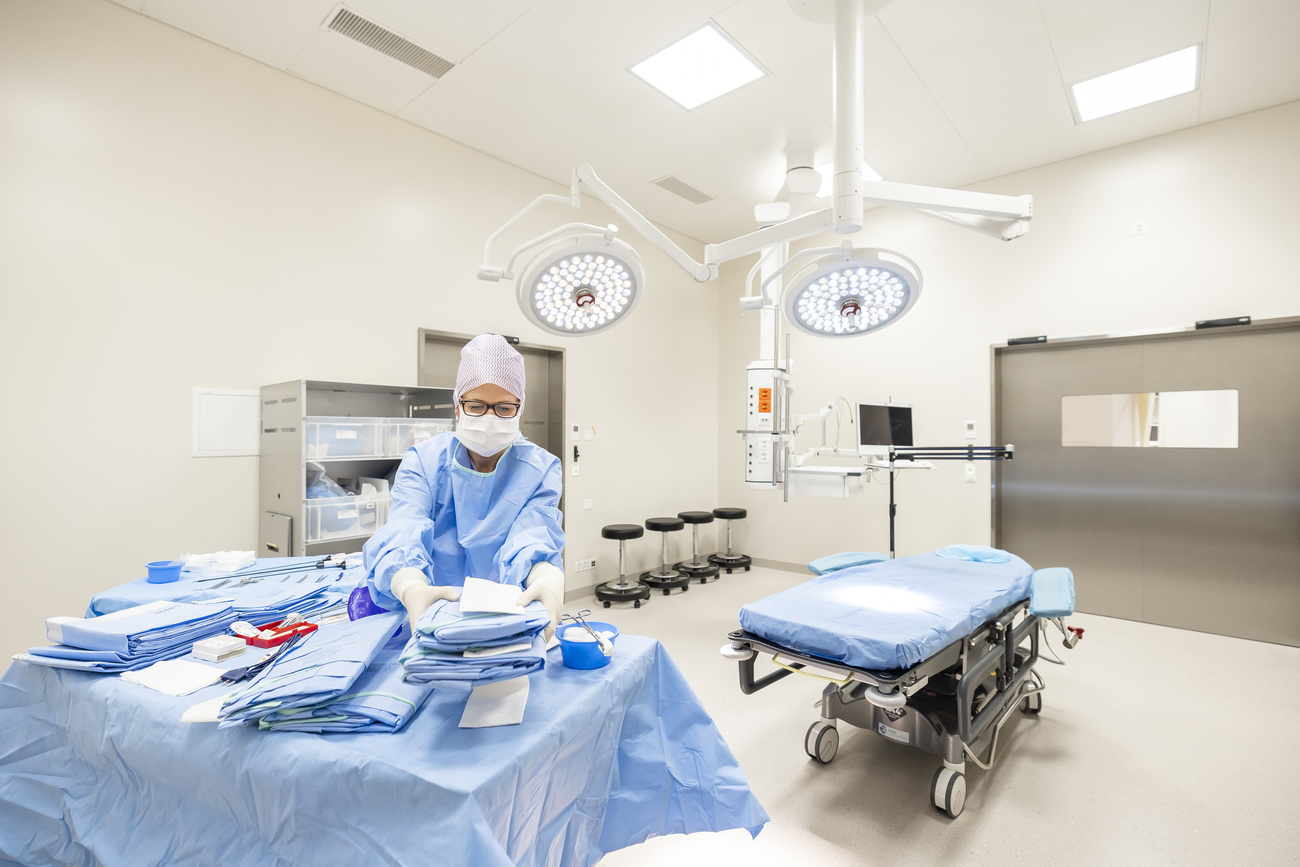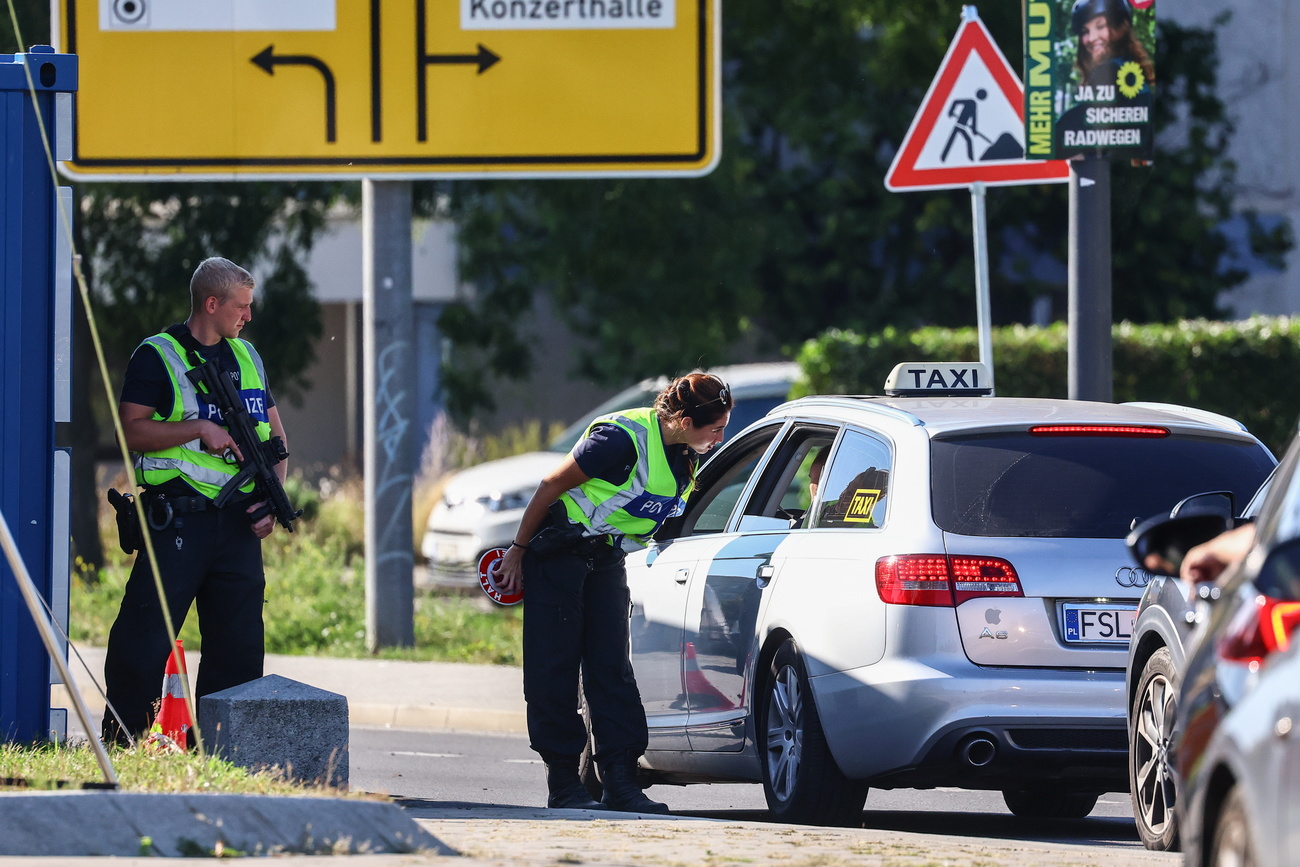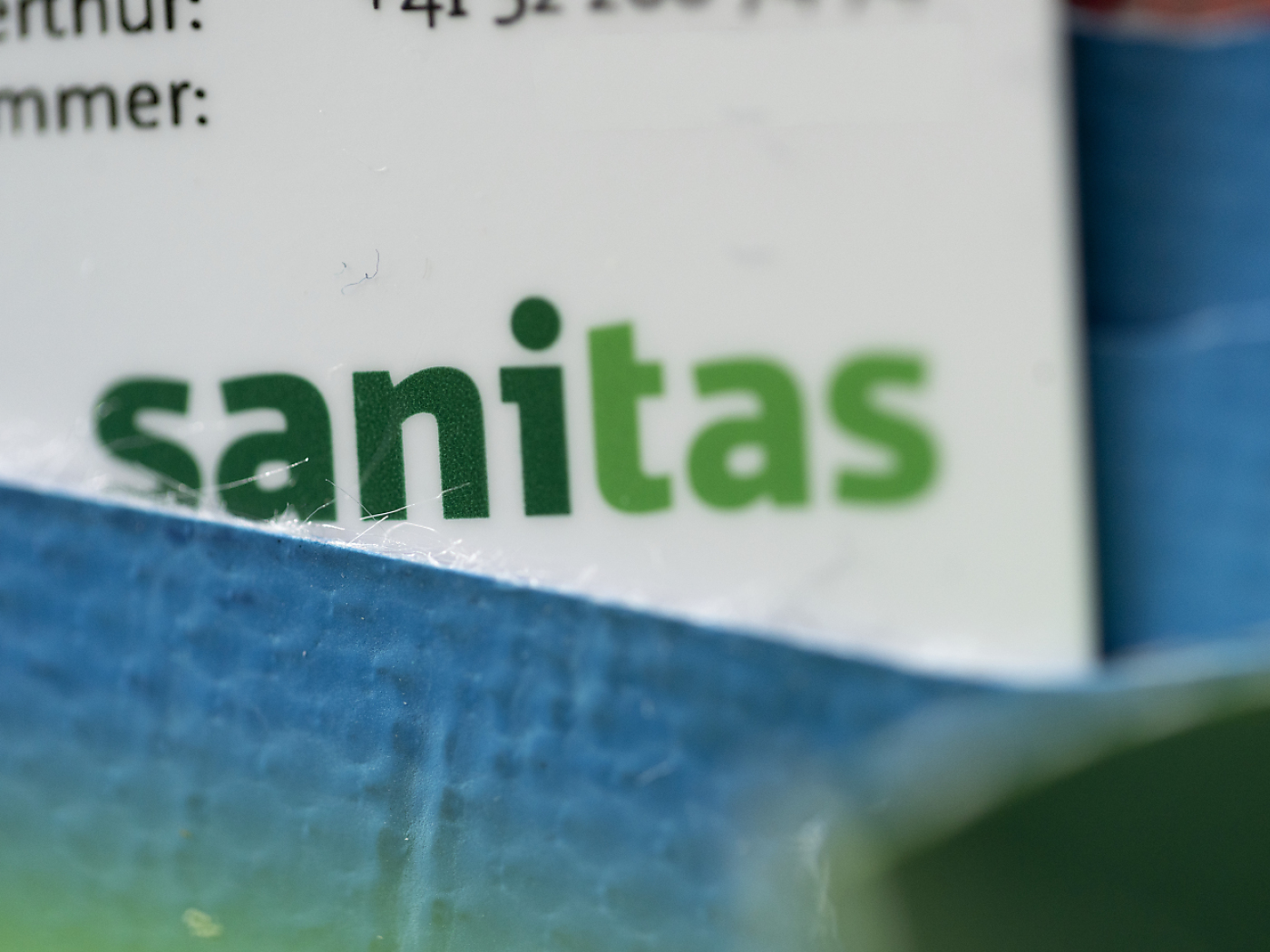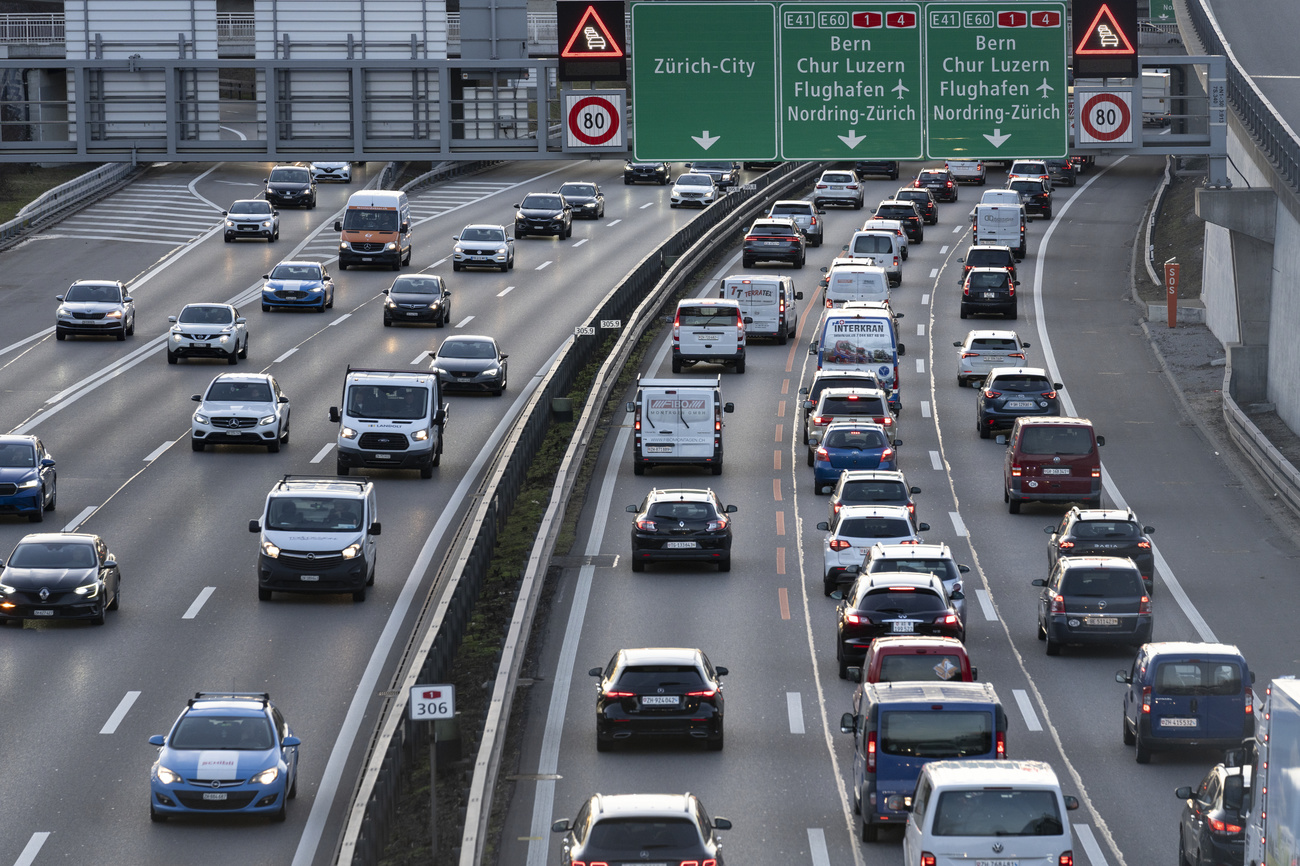Austrian president emphasises common bonds

President Heinz Fischer of Austria, who is paying a two-day state visit to Switzerland, tells swissinfo the two countries share very close relations.
Fischer, who was received by members of the Swiss government on Thursday in the capital Bern, hailed the pluralistic tradition of Switzerland and said he was an admirer of Switzerland’s impressive stability.
Besides bilateral accords, discussions focused on European and international issues, notably the situation in the Middle East, with both countries seeing themselves as “peacemakers”.
Fischer said he doubted the legality of the Iraq war and asked himself “why war?” when fighting broke out in Lebanon in July.
Swiss President Moritz Leuenberger said Switzerland and Austria were working in similar ways towards a shared goal of preventing war wherever it is in the world.
As for the Euro 2008 football championships, which the two countries are co-hosting, Fischer admitted his country was “in a crisis when it comes to kicking a ball, but not regarding organisation”.
swissinfo: How well do you know Switzerland and what is your relationship with your alpine neighbour?
Heinz Fischer: I know Switzerland very well. I have visited it as a tourist, as a climber, a skier and as a politician. I have an extremely rich and positive impression of Switzerland and that goes back decades.
swissinfo: Austria, unlike Switzerland, is a member of the European Union. Has membership paid off or are there also disadvantages?
H.F.: People are split over this question. I feel that Austria has clearly benefited from joining the EU.
I look at membership not only from the slightly selfish perspective of someone who thinks about what they get out of it and what it costs; Europe, for me, is basically about the promotion of peace.
Following the disasters of the two world wars, we have learned that European countries must cooperate together and that disputes should no longer be resolved through military means.
The EU makes this possible by preventing wars from starting within its borders.
swissinfo: Switzerland is not a member of the EU. What do Austrian people think about Switzerland – an island, a country that picks and chooses what it wants, or an outsider?
H.F.: Switzerland is definitely not an outsider. It has developed excellent relations with the EU and its most important neighbours are all EU members.
I am always careful about giving advice. I believe that Switzerland will continue to step up and intensify its cooperation with the EU, but at the end of the day the decision over EU membership will be up to the Swiss people.
swissinfo: So you think Switzerland still belongs to Europe?
H.F.: Switzerland is right at the centre of Europe. There are only a few states that have such a pluralistic European tradition as Switzerland. Its special charm comes from the many different cultures and languages that happily co-exist here and its striking stability.
swissinfo: There is an ongoing debate in Switzerland about neutrality. In recent years Austria has adapted its definition of “permanent neutrality” while remaining a neutral state. Has it proved its value?
H.F.: The neutrality law that was written into the Austrian constitution on October 26, 1955 is still in force and Austria is still bound by the principle of neutrality. Discussions over possible Nato membership are today pointless.
All major political parties have demonstrated their commitment to neutrality. EU membership has nevertheless brought with it additional obligations, such as solidarity towards other nations.
For me the main point is that no one can force Austria to take part in EU military activities.
Our decision is guided by the Austrian constitution and our political objective to take part in United Nations peacekeeping missions of a reasonable size that offer proper safeguards.
swissinfo: The European football championships in 2008 will be jointly hosted by Austria and Switzerland. Is that a dream team?
H.F.: It’s wonderful that both countries are organising the event together, enabling us to double our capacities, expertise and organisational skills. It’s great that we are able to combine the talents of our two countries. I could well imagine this set-up being used as a model for the future.
swissinfo: What similarities are there between both countries apart from the idyllic mountains and folk music?
H.F.: We have many points in common, as well as numerous differences. Over the past few centuries Switzerland and Austria have experienced similar cultural influences and we use the same language – well, at least partly.
There are also differences, which give each country its charm, and which also create a sort of healthy tension between us; I want to stress “healthy” here.
swissinfo: People say that the Austrians are friendlier than the Swiss. What do you think?
H.F.: I have a bit of a problem with generalisations. There are moody and unfriendly Austrians, as there are charming and pleasant Swiss people.
Someone who is good at people-watching might say that the Austrians are exceptionally charming and the Swiss are very competent and hard-working.
I am very happy with the way in which different talents have been equally distributed between both countries.
swissinfo: In Switzerland we have jokes about Austrians. Do you have any about the Swiss?
H.F.: I could probably tell you about 20 jokes about the Austrians, but at the moment I can’t think of any about the Swiss. But they must exist, as there’s not a single country in the world that escapes joke-free.
swissinfo-interview: Gaby Ochsenbein
In general every year Switzerland invites a foreign head of state for an official visit. In 2006 Austrian President Heinz Fischer will be carrying out a two-day state visit to Switzerland on September 7-8.
Talks with the Swiss government will focus on strengthening relations, Europe, the European football championships in 2008, as well as scientific and cultural cooperation.
Fischer will also be visiting canton Ticino during his stay.
The last official visit by an Austrian head of state was in 1992.
Austria (8.2 million inhabitants) is twice as big as Switzerland (7.4 million inhabitants).
Austria joined the European Union in 1995.
Switzerland and Austria are both neutral states and have banking secrecy laws.
In 2005 the volume of trade between both countries was SFr12 billion ($9.71 billion).
Heinz Fischer was born on October 9, 1938 in Graz.
He studied law at the Vienna University.
Since the 1960s he has served in various positions as a member of the Social Democratic Party of Austria: member of parliament, head of the parliamentary party, deputy head of the party, science minister and parliamentary president.
Since July 8, 2004 he has been federal president of Austria.

In compliance with the JTI standards
More: SWI swissinfo.ch certified by the Journalism Trust Initiative











You can find an overview of ongoing debates with our journalists here . Please join us!
If you want to start a conversation about a topic raised in this article or want to report factual errors, email us at english@swissinfo.ch.